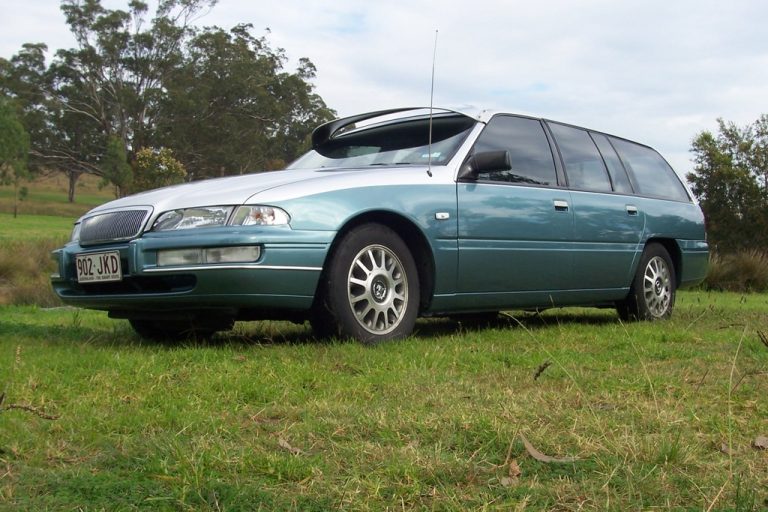It’s not uncommon for people to feel a strong emotional attachment to their cars. Whether it’s a sentimental connection to a classic car, a sense of pride in a high-performance sports car, or simply the familiarity and comfort of a reliable daily driver, the bond between a person and their car can run deep.
How much money would you spend on the maintenance, modification, or storage of your pride and joy? The answers aren’t always sensible depending on who you’re asking. An emotional attachment to a vehicle, even in poor condition, may elicit a willingness to over-capitalize. It can indeed make someone hold on to the said vehicle for much longer than is practical.
Let’s put it another way. Have you ever had to sell a car? Has a vehicle you’ve owned been written off, or even just damaged? Most of us can answer yes to at least one of those questions. Now, has being in that situation made you feel sad, depressed, or even sick to your stomach? How can an inanimate object create such feelings? How can otherwise rational people be so emotionally connected to a mass of rubber, metal, and glass? It doesn’t make much sense, does it? But for many people, the connection IS greater than just ownership. “Cars are so much more than just transportation. They’re our companions on the road of life.” This quote sums up the emotional attachment many people have to their cars. For many, their car is more than just a means of getting from point A to point B – it’s a trusted companion on their life journey. For some people, their car is a place of solace and refuge. It’s a space where they can escape the stresses of daily life and find peace and quiet.
Studies
Books and hypotheses have been written on the subject of humans’ history of psychological attachment to objects, with some believing that the foundation of religion stems from our inclination to assign human characteristics to nonhuman things. One study conducted by researchers at the University of Michigan found that many people view their cars as an extension of themselves, with the vehicle serving as a reflection of their personality and identity (Belk et al., 1989).
New York’s Bard Graduate Centre even used to offer a graduate-level course titled “Psychologies of Things: Emotion, Perception, and the Life of Inanimate Objects “. This explored the relationships between people and the items around them. Part of this course involved the concept of what is called a transitional object; when an infant gets older and explores independence from its mother. The infant will often transfer their maternal bond to their favourite blanket or teddy bear for example. All along I thought the idea of “things” having feelings was just something we’d learned from Disney films!
Statistics
A 2013 survey by AutoTrader.com (Automotive relationships survey) revealed some surprising statistics about this theory concerning cars. 48 percent of women surveyed said they were attached to their cars based on looks compared to just 29 percent of men. Respondents aged 18-24 are most likely to have looks affect their attachment, whereas 55-64-year-olds form an attachment because of how the car drives. Shared adventures and the fond memories they invoke give men a stronger bond with their ride than women, with 57 percent of male respondents feeling this as opposed to just 20 percent of women, and 36 percent of all those surveyed (1250 American adults) describing their vehicle as “an old friend”. Just like a beloved pet or a cherished family heirloom, a car can become an important and beloved member of the family. Maybe asking them to justify how much they are willing to spend to maintain, update, or just house that other “part of the family” will reveal an answer that you wouldn’t understand if you felt the need to ask in the first place.
Reasons
The reasons for these strong feelings vary as much as the cars themselves. People see them as an extension of themselves, a part of their identity. They feel a sense of ownership and pride in their vehicle, attributing human-like qualities such as personality and emotions to them. There’s the thrill, excitement, and danger that comes with driving a performance car and the emotional connection that brings. Jeremy Clarkson, famously said, “Speed has never killed anyone. Suddenly becoming stationary, that’s what gets you“.
The performance and aesthetics of a car can also contribute to emotional attachment. Many car enthusiasts appreciate the design and craftsmanship that goes into creating a vehicle. The sound of the engine, the way the car handles and the feeling of acceleration can all create a visceral emotional response. This is reflected in the words of automotive journalist and presenter Chris Harris, who said, “Cars are so much more than a mode of transport. They’re like a great suit or a beautiful watch. They give you an emotional response”.
Another reason why people become emotionally attached to their cars is the memories that are associated with them. Many people have fond memories of driving their first car or taking a road trip with friends or family. These memories create an emotional bond with the car, and people often hold onto their vehicles for sentimental reasons. This is evident in the words of car enthusiast Jay Leno, who said, “I still have my first car. It was a 1965 Mustang. I still have it and drive it. It’s great fun”.
And you?
In conclusion, emotional attachment to our motor car is a complex phenomenon that can be attributed to various factors. Our cars become a part of us, they become our identity. We develop strong emotional bonds with them because of the memories associated with them, their performance, and their aesthetics. As car enthusiasts, we appreciate the craftsmanship and design that goes into creating a vehicle and the visceral emotional response that comes with driving it. Cars are part of our culture, they’re part of our lives, and they’re part of who we are.
So what about you, we REALLY want to hear your story. Share a couple of pictures and a bit of info about what makes your ride so special. How long have you owned it? What work have you done to it? Is it (really) finished? We’re on Facebook, Instagram, and Twitter, it would be great to hear from you.
Powered by Best CBD Oil for Pain

